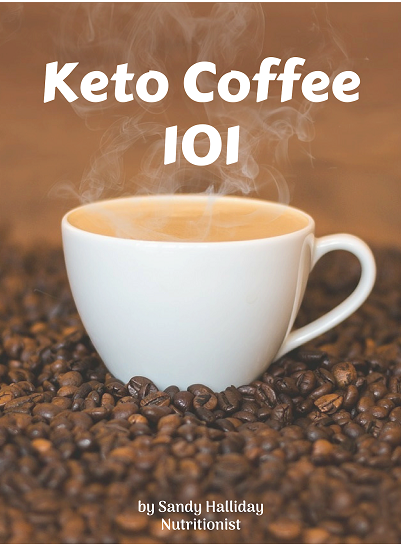The keto diet is one of the most popular diets of today. But, just like with the other diet plans, it comes with controversies, such as the issue of keto depression. Some say that ketosis could trigger depression. However, others refute this claim by saying that the keto diet can, in fact, boost mental health and cure depression.
Related reading: How A Keto Diet Can Boost Your Mood
So, is keto depression real? How can the keto diet affect our mental health? Read on to find out more about this.
Keto Depression – How Keto Affects Mental Health
To determine whether the keto diet can affect depression, let’s look at how the diet affects our mental health. While several studies show that the ketogenic diet has a positive impact on our mental health, there’s currently a lack of robust clinical studies to prove the actual effects of the diet on mental health.
However, keto has been found to affect the brain in several positive ways, that include the following:
Boosts a “Feel Good” Effect
The keto diet’s main goal is to put your body into ketosis, where it starts to burn fats as fuel instead of carbs. Evidence has shown that being in ketosis could boost the production of a neurotransmitter in the brain called GABA (Gamma-aminobutyric acid) or the “feel good” neurotransmitters.
Various evidence shows that several mental disorders, such as anxiety, are due to the dysfunctional activity of GABA.
Keto Depression
Studies on the keto diet for seizure treatment have shown that having a proper balance of GABA can improve mental focus, thereby reducing stress and anxiety. So, when it comes to keto depression, it’s safe to say that the keto diet can actually help with depression and not cause it based on these studies.
Improves Brain Power
While many believe that glucose is essential for the brain, the ketones that your body will produce in ketosis are a better alternative and more efficient fuel for the brain. Ketones can provide up to 75% of the brain’s energy needs.
The research further shows that ketones could multiply the number of mitochondria (energy factories) in the brain cells, which boosts energy levels in those cells. When it comes to mental health, this aspect is very important since many mental disorders have one common problem – insufficient production of energy.
Potent Antioxidant Effects
Studies have shown that the keto diet could help to reduce the brain’s oxidative stress and inflammation. Researchers believe that a lower level of inflammation and enhanced energy level can improve the proper functioning of the brain. When the brain functions well, mental health can be improved.
Related reading: Is Keto Anti-Inflammatory? Find Out Here
Also, some studies have shown that one of the reasons the keto diet is effective for treating seizures in epilepsy is that it increases glutathione. This is a major antioxidant that protects the body from oxidative stress.
How Keto May Cause Depression
As seen above, there’s been enough evidence to prove that keto could improve mental health. Of course, more robust studies are needed regarding keto depression. But this does not mean that those following the keto diet are not suffering from any mental health.
The effects of keto are not the same for everyone. While others feel good about keto, some people have to deal with issues like the keto flu and depressive symptoms. Here are some reasons why keto could cause depression in some people.
It Could Be Due to Keto Flu
The keto flu is a common side effect that some people suffer when starting the keto diet. Sometimes, it could take a while for the body to adjust to ketosis.
As a result, you could suffer from headaches, fatigue, and sleep deprivation that could make you feel stressed and depressed. Thankfully, the keto flu will soon disappear once your body gets used to ketosis.
Nutritional Deficiency
Drastically changing your diet could lead to nutritional deficiency, which is one reason that could cause keto depression. Nutrients like magnesium, zinc, and selenium could suddenly drop once you start to eliminate carbs from your diet.
Not having enough levels of these micronutrients could cause depression. Strategizing the type of foods you eat on keto while taking some supplements could address this issue.
What to Do When You Feel Keto Depression
Aside from the things mentioned above, there are many other reasons why you could be feeling depressed while following the keto diet. But it’s important to understand that there’s a big difference between having a depressive disorder and feeling occasionally depressed.
It is normal to feel sad from time to time. However, if it’s already affecting your quality of life, you should immediately seek professional help.
If you find yourself suffering from keto depression, here’s what you can do.
Stop the Diet
Don’t force yourself to follow keto if you feel depressed after starting with the diet. Talk to a doctor or a nutrition expert to find out what could work best for you. Remember, the keto diet is not the only means to lose weight.
Related reading: Modified Keto Diet – A Better Way to Lose Weight?
Consider Carbing Up
You can start with a gentler way of following the keto diet. Also known as cyclic keto, carbing up is a type of keto diet that will require you to ease up for certain days by fueling with carbs. It’s a much easier approach to the keto diet and could help fight off your keto depression.
Make It Enjoyable
The restrictive nature of the keto diet could make you feel depressed. Cutting out carbs could lead to nutrient deficiencies that further affect your mood. So, try to look for ways to make your keto journey as enjoyable as possible.
There are delicious keto recipes out there that you can try. Stock up on delectable keto snacks and go all-in with your favorite healthy fats.
Final thoughts about keto depression
There is no “one-size-fits-all” approach to losing weight, which goes the same with mental health. The keto diet has been proven to have powerful effects on the brain. Besides, it was originally developed to treat seizures in epilepsy. It has been proven to boost mood, improve brain functioning, and reduce oxidative stress and inflammation.
If you find yourself suffering from keto depression, stop the diet and seek help from a qualified mental healthcare provider. And, if you are someone who is suffering from depression and have not tried the diet yet, you might want to give keto a try as it may help relieve your depressive symptoms.










